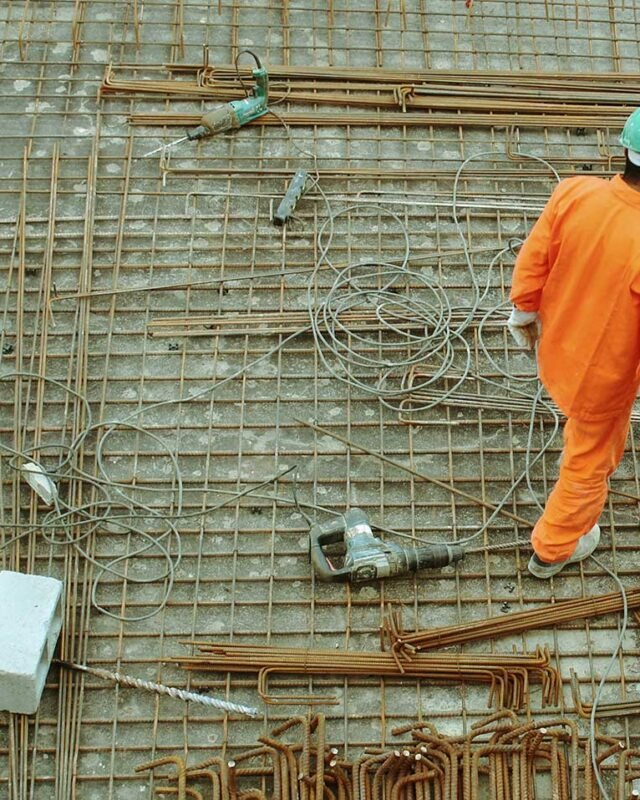The Saudi smart building market is poised for significant growth, driven by advancements in technology and increasing demand for energy-efficient solutions. Smart buildings leverage automated processes to manage operations such as heating, air conditioning, lighting, ventilation, and security. This integration of information technology and the Internet of Things (IoT) optimizes building performance, reduces energy consumption, and enhances occupant comfort and safety. In this research conducted by our Saudi smart building consulting team at Eurogroup, we provide a brief overview of the market’s dynamics and future prospects.
Key Market Drivers
The primary driver of growth in the Saudi smart building market is the increasing demand for efficient and convenient building management solutions. The Saudi Energy Efficiency Center reports that buildings in Saudi Arabia consume 80% of the country’s total electricity. In response, key market players are developing advanced technologies in lighting, heating, and cooling systems to reduce electricity consumption. The integration of IoT in smart buildings enhances energy efficiency and productivity.
Government initiatives such as the National Transformation Program 2020 and the development of smart cities like NEOM are also propelling market growth. These initiatives focus on using innovative technologies and smart policies to promote eco-friendly and green buildings. The rising infrastructural development and growing awareness of space utilization further drive the adoption of smart buildings.
Segment Analysis
The market is segmented by components, solutions, services, and building types. The energy management segment is expected to lead due to its capability to minimize energy consumption in buildings. In terms of building type, the commercial segment is projected to grow rapidly, with corporate offices, hospitals, airports, and railway stations increasingly adopting smart building solutions to enhance security, productivity, and space utilization.
Market Challenges and Opportunities
Despite the promising growth, the market faces challenges such as high initial costs and a lack of awareness about smart building benefits. However, the ongoing investments in major construction projects like the Red Sea project, Jeddah Tower, and Qiddiya Entertainment City present significant opportunities for market expansion. As these projects continue to develop, they create a substantial demand for smart building technologies and solutions, opening avenues for further growth.
Additionally, the emphasis on sustainability and energy efficiency aligns well with Saudi Arabia’s Vision 2030, which aims to diversify the economy and reduce dependence on oil. This strategic vision encourages the adoption of smart building technologies that contribute to sustainable urban development. By implementing smart solutions, buildings can significantly reduce their carbon footprint and contribute to the nation’s environmental goals.
Leading Players
Prominent players in the Saudi smart building market include IBM Corporation, Honeywell Automation, Inc., Siemens Saudi Arabia, Johnson Controls, Schneider Electric Saudi Arabia, Telit, Hitachi Saudi Arabia, Ltd., Intel Corporation, ABB Saudi Arabia, and L&T Electrical & Automation Saudi Arabia Company Ltd.. These companies are focusing on developing environment-friendly technologies to reduce electricity consumption and enhance building efficiency. Their innovative solutions cater to the growing demand for smart building systems, ensuring energy efficiency, security, and optimal building management.
Conclusion
The Saudi smart building market is on a growth trajectory, driven by technological advancements, government initiatives, and increasing awareness of energy efficiency. For stakeholders and investors, understanding the market dynamics and trends is crucial for capitalizing on the opportunities presented by this burgeoning sector. As the market evolves, smart building solutions will play a pivotal role in shaping the future of Saudi Arabia’s infrastructure.
In conclusion, the Saudi smart building sector is becoming increasingly important. Effective Saudi smart building consulting can guide stakeholders through the complexities of this market, ensuring they leverage the latest technologies and strategies for maximum benefit. By focusing on emerging opportunities and effective portfolio management, the report offers valuable insights for navigating the challenges and maximizing returns in the Saudi smart building market.



